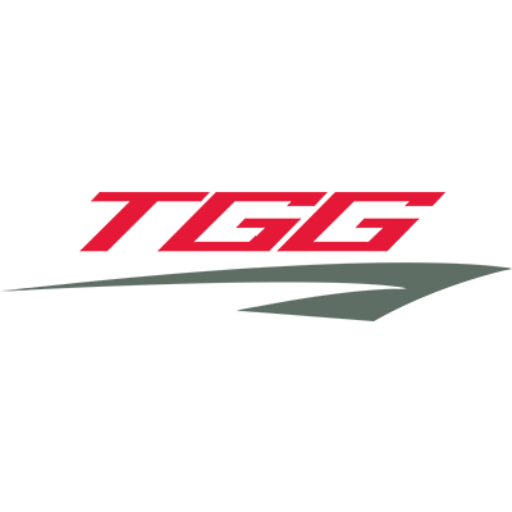CFO’s and audit committees are seeking innovation from tax departments to decrease financial close cycles and increase transparency into tax planning and reporting. On one hand, it is critical for CFOs and management teams to understand the financial impact strategic tax planning activities, such as transfer pricing, can have on the organization while also considering public perception and increasing skepticism about corporate tax practices. On the other hand, CFO’s are under intense pressure to drive productivity savings through the back office and redeploy resources into business partner-focused roles for sales, operations or directly into lines of business.

Like many in finance and accounting, tax departments have historically relied on spreadsheets for tax data collection, provisioning and reporting – with as much as 90% of companies still relying of them. Modern CFOs and finance teams also have enterprise level responsibilities to empower the entire business with critical data and insights required for operational decisions. To outpace competition, business leaders require real-time data and cannot afford risks associated with latent or stale data from disparate, legacy applications. Further, CFOs and Finance leaders must allocate adequate time to reviewing financial reporting and investor guidance prior to releasing financial results.
Business Challenges
For many organizations, the tax provisioning process can add as many as 5 days to the financial close – materially impacting the ability to meet external reporting requirements and decrease the time available for CFOs to focus on forecasting, analysis and investor relations activities. For large, sophisticated businesses with multiple legal entities and complex ownership structures, there are even greater challenges which include:
- Lack of Transparency: How to provide proper documentation and traceability for detailed tax calculations across the globe in accordance with Sarbanes Oxley (SOX) requirements.
- Spreadsheet Risk: How to mitigate global control risks such as user error or version control associated with use of spreadsheets.
- Disconnected Systems & Availability: How to ensure there is one source of the truth used for multiple legal entities often using disparate systems to capture data.
Aligning Tax Provision with Financial Reporting
Purpose-built provision software solutions offer strong benefits for tax departments to consider when evaluating options to modernize. With several options available on the market today, there are many important factors to consider, such as whether the solution provides single source data collection, guided workflow capability and extensible financial reporting.
Additionally, a purpose-built tax provisioning application that is seamlessly integrated with financial consolidation and reporting, can materially decrease accounting close cycles while delivering increased accuracy and transparency. By leveraging a single, unified platform with guided workflow and process controls, tax teams can mitigate risks associated with using disparate data sources and spreadsheets – and drive a higher return on investment.
OneStream’s Tax Provision Starter Kit
Available from the OneStream XF MarketPlace, the Tax Provision Starter Kit is one of 50+ purpose-built business and productivity solutions that address complex processes across the enterprise. The OneStream XF Marketplace solutions are all built directly on the OneStream XF platform, enabling customers to extend their OneStream investment with additional solutions for the office of finance and beyond.
The OneStream Tax Provision Starter Kit aligns tax provision with financial consolidation and reporting. As a pre-built solution, it accelerates time to value and eliminates spreadsheets and disconnected point solutions from the tax provisioning process. This approach offers several benefits for tax departments: 
- Reduce Risk – Automate and streamline tax data collection and validation, and ensure consistency in tax calculations
- Report Transparently – Report consolidated and statutory ETR with full drill-down into supporting details, and generate footnotes and management reporting
- Increase Efficiency – Synchronize data and minimize reconciliation, automate reporting and export data to tax compliance systems
OneStream Tax Provision Starter Kit
Tangible Benefits Delivered
Implementing the XF Marketplace’s Tax Provision Starter Kit has brought tangible benefits to OneStream customers – adding significant ROI to their OneStream investment.
Guardian Industries, a $4B diversified global manufacturing company operating in 25 countries, has automated their worldwide tax provisioning process, which consisted of 75 Excel-based files, and is now moving from an annual to monthly provisioning process. Tax managers save a drastic amount time from data collection and allocate the time savings back into critical reviews and analysis of tax data, ensuring maximum accuracy for the tax provision.
Victaulic, the world’s leading producer of mechanical pipe joining solutions, with 3,600 employees at over 40 locations and 19 global entities previously used spreadsheets to manage tax provisioning, which was taking a week to complete at year-end. Victaulic chose to leverage its investment in OneStream and extend its use of the platform for its total tax provision requirements. Upon phase 1 completion, Victaulic automated 86% of their processes across the globe – adding a consistent, standard and controllable business process with maximum transparency to support each legal entity.
Learn More
To learn more about the challenges of tax provisioning and how tax leaders are innovating with purpose-built software solutions, download our Whitepaper: How to Reduce Risk, Improve Transparency and Increase Efficiency in Tax Provisioning.
Re-posted with permission from Source


